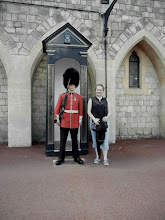Like most of the historical fiction books that have come out recently, this is a dual timeline book where both stories eventually weave together to one conclusion.
The first timeline takes place in 1957. Naoko's family owns a successful business. She falls in love with an American soldier, although they want her to marry a Japanese businessman whose family is in business with her family. Naoko falls for Hajime and does her best to introduce him to her family, but her family immediately shuns her. To make matters worse, Naoko soon finds herself pregnant with Hajime's child. Now, she's forced to make difficult decisions that puts her at odds with her traditional family.
In the other timeline, Tori attempts to take care of her father as he dies from cancer. During this time, he finally confesses to a somewhat sordid past before he met her mother. This sets Tori on a whirlwind adventure as she attempts to figure out who her father really was and what secrets his past held while simultaneously dealing with the stresses of her father's failing health.
Okay, what did I dislike about the book? Honestly, I have no idea. I've tried to figure it out, and I really can't put my finger on it. I read the book in a day, so it wasn't a difficult book to read. I feel like the first half of the book dragged. While the second half of the book picked up, it did seem very rushed at times, like Ana Johns was ready to get the book over with for some reason. It didn't seem very balanced at all. I also felt that the characters were somewhat unbelievable and somewhat annoying. I had trouble connecting or empathizing with any of them. Don't even get me started on Tori's timeline. It seemed strange, especially given the fact that she had almost zero interactions with other people; no friends, no family members, etc. For a woman in mourning, it seemed completely unrealistic. The book had so much potential, but it didn't live up to it. It is worth noting that this is Ana Johns' first book, so there is hope that as she grows as a writer, her books will improve in quality.
Honestly, I feel like I don't have a lot to say a lot about this book because I didn't really enjoy it that much. I do have to say, I was heartbroken that Naoko killed her baby and chose her family over her child. It seemed like a huge slap to the face. Now, I'm not a mother, but from what I understand about children, maternal instinct is one of the strongest feelings ever. On the other hand, she knew that her child was sickly and would have had a prolonged, terrible death. Still, Hatsu did the same thing to her baby, who could have been far healthier. Of course, I can't really empathize with their less than ideal situations and the pressures they were under, both from society and their extremely traditional cultures. Still, I feel like once the baby's born, they had more options. Besides, they left the Bamboo House so their babies could live, or so I thought.
Since I read this book for book club, I created a list of questions to discuss. I've found the easiest way to do this is to keep a piece of paper in the book and write questions as I read instead of trying to think back and write all the questions after the fact. Since these questions cover the entire book, they will contain spoilers.
- What role does tradition play in the book?
- How was how Naoko's family treated Hajime a result of World War II?
- Was Taro or Naoko under more pressure to uphold the family?
- Kiko calls Naoko a fool for loving Hajime and wanting to keep the baby. Do you agree?
- How was Naoko's relationship with Hajime an example of her taking control of her life?
- Why is Naoko staying on good terms with her family so important to Hajime?
- Why wouldn't Hajime's commander sign the marriage paperwork?
- Was Naoko really to blame for her mother's death?
- What was the purpose of Satoshi being Naoko's chaperone to the Bamboo House?
- Why is Satoshi so understanding of Naoko?
- Had you been in Tori's shoes, would you have immediately up and left for Japan?
- Were you surprised Naoko's grandmother sent her to the Bamboo House?
- Was Naoko's observation that she, Hatsu and Jin were like the three monkeys an accurate observation?
- What's the symbolism behind naming Jin's baby "Minori" (Truth)?
- Why couldn't Tori admit her scarf once belonged to Naoko?
- While giving birth, Naoko says to herself, "I'm done being quiet." How does she exemplify this?
- How did prejudice and racism contribute to the story?
- Had Naoko replied to James' letters, do you think it would have worked out for them?
- Was Tori's journey to Japan a result of guilt for having a father her sister never had herself?
- Were you surprised to find out Naoko married Satoshi?
- What was your reaction to Naoko's decision about her baby?
- Was it a coincidence that Tori and her sister shared a name or did her dad know something more to the story?












0 comments:
Post a Comment